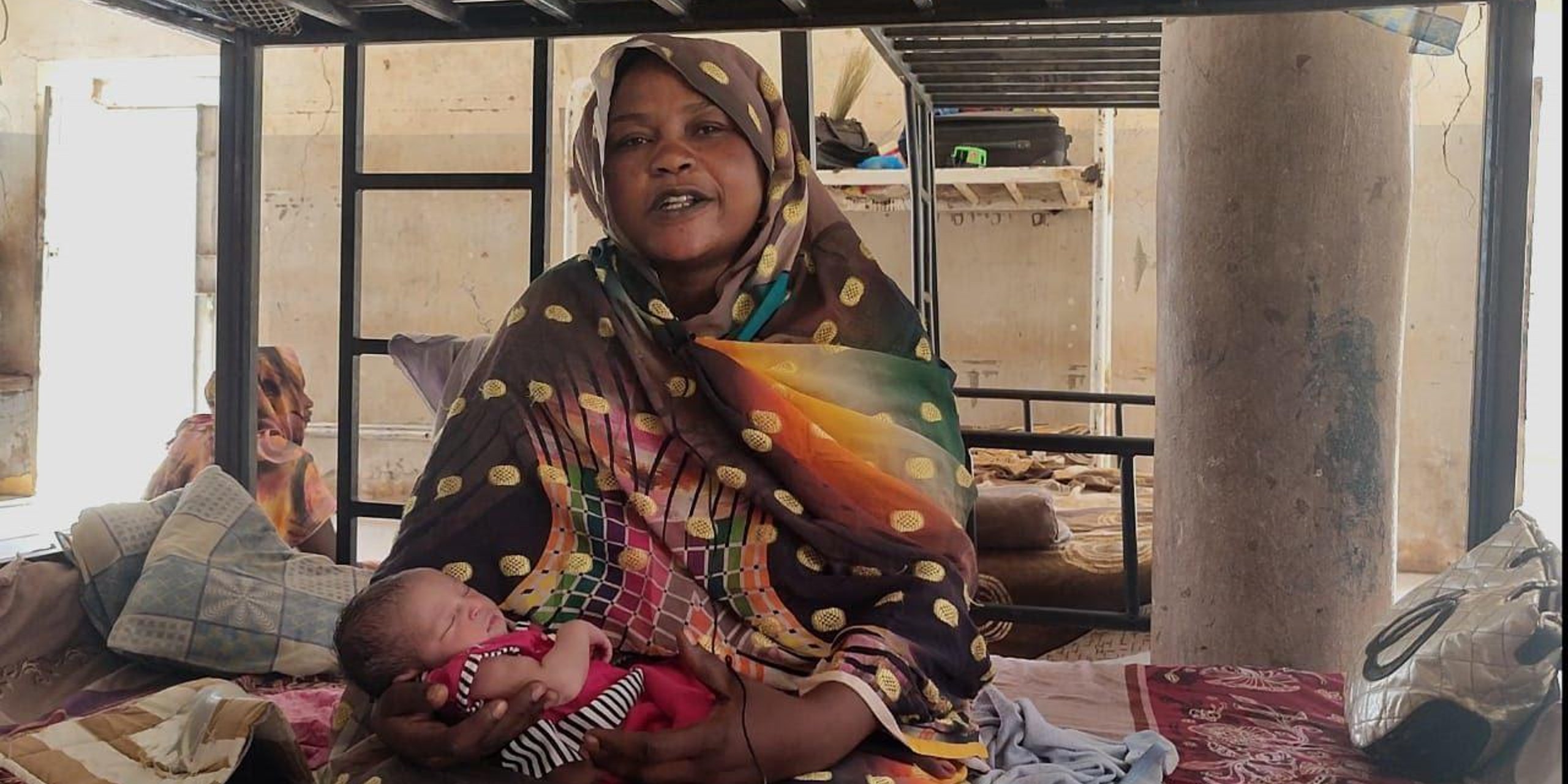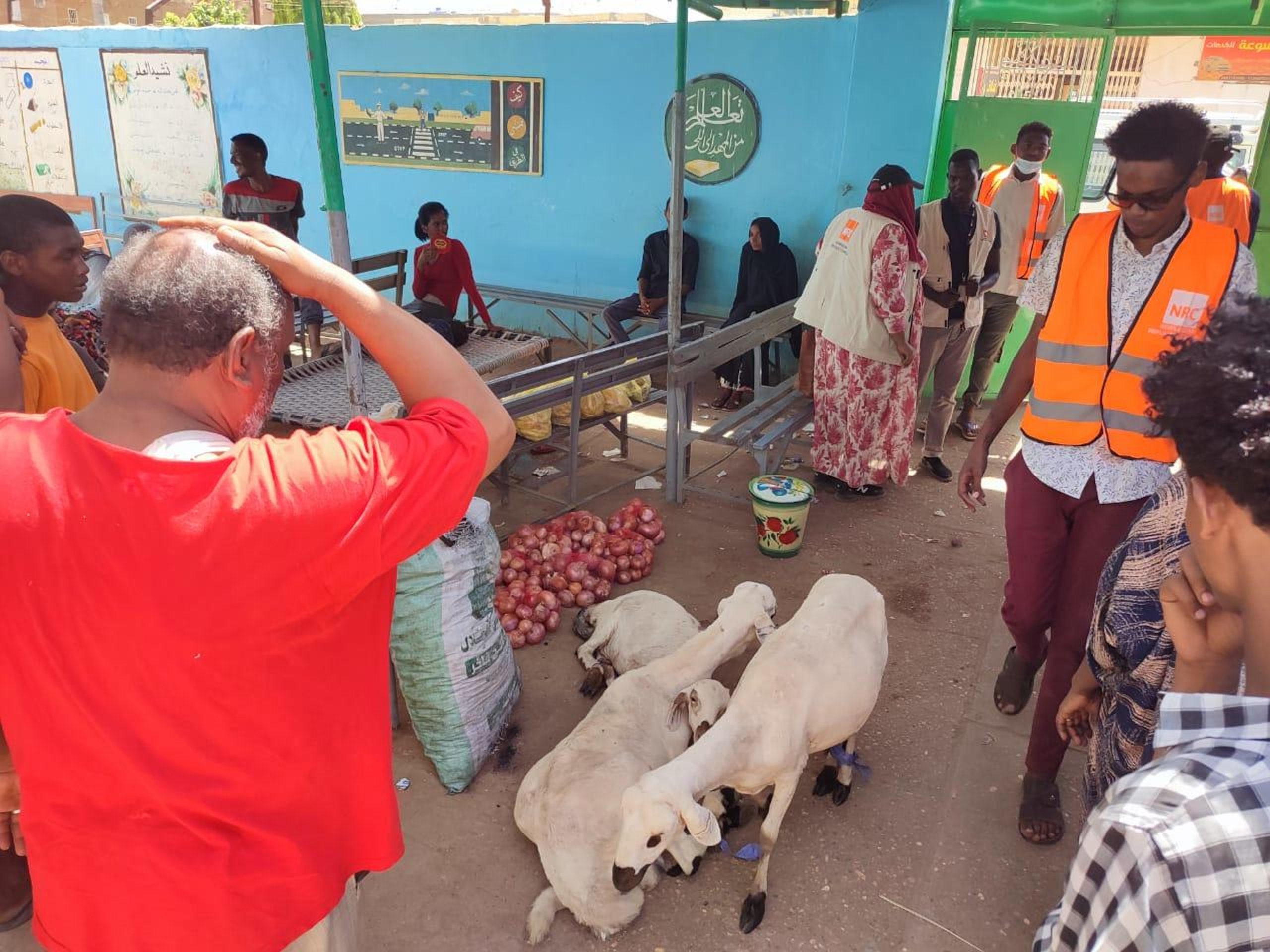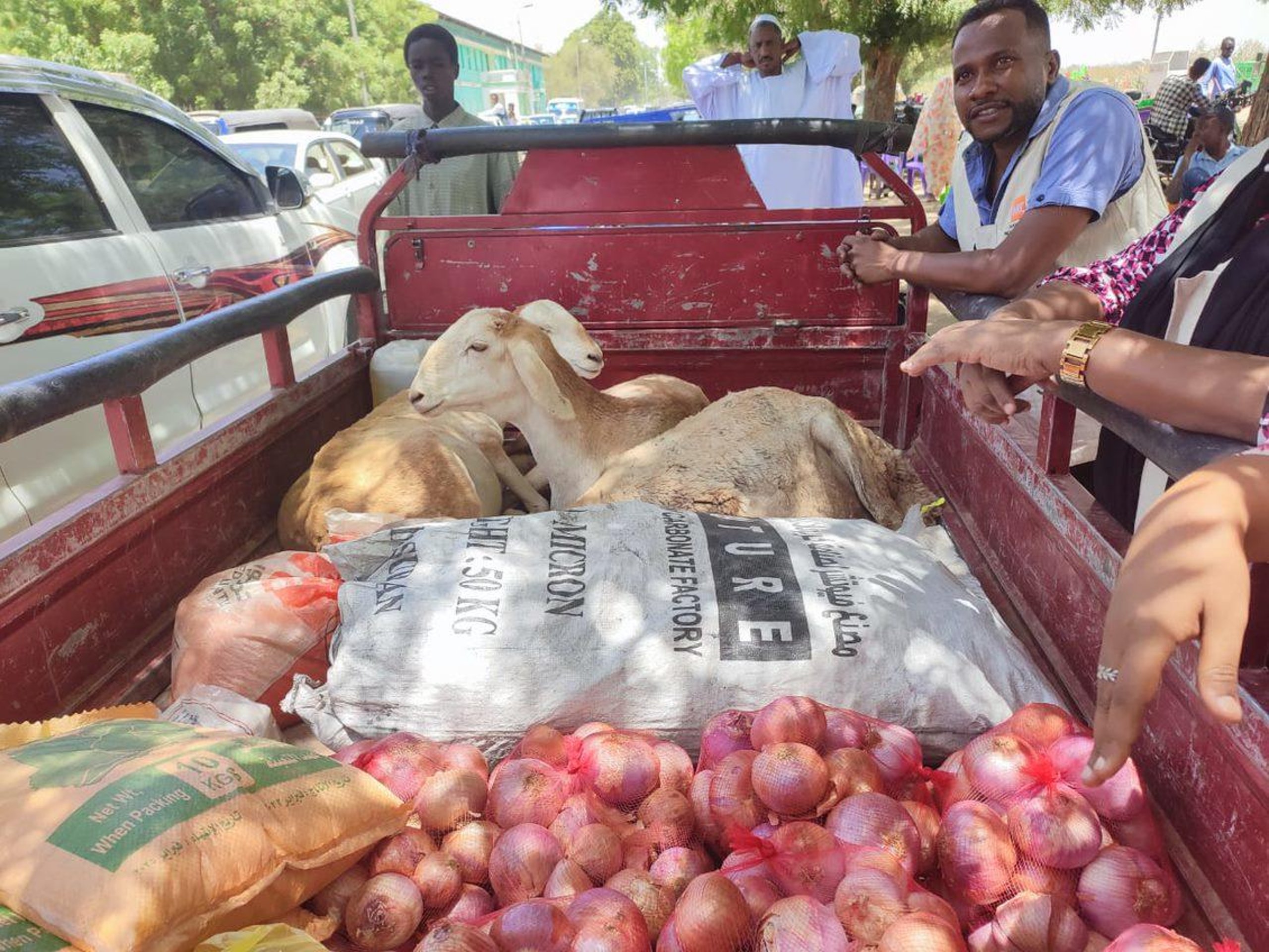
Senseless violence broke out in the middle of the capital city as the Sudanese Armed Forces (SAF) and the Rapid Support Forces (RSF) started fighting with tanks, airstrikes and snipers. Bullets and missiles began hitting homes, hospitals, shops. Water and electricity supplies stopped as the facilities were hit.
Heavily pregnant Said Hawa decided to escape. She gave birth just hours after reaching safety in the town of Wad Madani.
“The main road out of Khartoum was too dangerous, especially for me who was nine months pregnant. We therefore followed the smaller dirt roads and arrived just in time before I gave birth. Against all odds, I gave birth to this precious baby girl here in Madani,” says the new mother, proudly showing off her three-day-old daughter.

A month of uninterrupted violence
It's now been one month since Sudan collapsed into conflict. Every day, the Norwegian Refugee Council (NRC) teams receive reports of a colleague who has been forced to flee, or worse, who has seen one of their relatives die – killed in the fighting, or because they could not reach a hospital.
The warring parties have continued using explosive weapons in populated areas, and plumes of smoke can now be seen every day in the sky above Khartoum.
And the fighting has spread far beyond the capital. In the restless region of Darfur, violence broke out in the city of Geneina. Weeks of violence in the middle of the city have caused widespread destruction and burning of properties. Health facilities, the central market, humanitarian premises and public buildings have been looted.
The situation has caused widespread panic and forced many people to flee for their lives. But the roads out of the city are highly insecure, and the population is essentially trapped.
Lack of food, fuel, water and cash
Prices of food, fuel and other basic goods are skyrocketing, making essential goods unaffordable for many people.
In Khartoum, several neighbourhoods continue to face severe shortages due to blackouts, a lack of fuel and damage to water supplies.
Across the country and particularly in Khartoum and Darfur, access to cash has been heavily compromised as the banks have generally remained closed since the beginning of the conflict. This is seriously hampering people’s ability to provide for the basics or pay for transportation to flee to a safer location.
The World Food Programme (WFP) has warned that an additional 2 to 2.5 million people are expected to face hunger in the coming months. Some 19 million people in total are expected to be affected by food insecurity across the country.
People fleeing for their lives
For the past decade, Khartoum has been a safe haven for a million people displaced within Sudan and hundreds of thousands of refugees. But now, it is a place that people flee from.
Some 936,000 people have been newly displaced by the conflict since 15 April, with around 736,200 of these fleeing to another part of Sudan. These numbers are likely an underestimate, but still represent more than the 2021 and 2022 numbers of displaced people combined.
About 200,000 people have fled to neighbouring countries, like South Sudan, Chad, Ethiopia, Egypt, the Kingdom of Saudi Arabia, and the Central African Republic. They are facing traumatising conditions.
Before the current conflict, 3.7 million people were already displaced because of violence across the country, with entire generations forced to grow up in displacement – particularly in Darfur.

Local solidarity
Across the country, individuals are organising themselves to help each other. Families open their homes and share the little resources they have with the fleeing population. In the city of Wad Madani, in the east of Sudan, thousands of internally displaced people arrive every day to seek refuge.
One of our emergency aid teams has been in place to help. Among other things, we have given out bread, beans, onions, cooking oil, sugar, tea, meat and cooking fuel. In addition, families have received soap and other hygiene items. But these are a drop in an ocean of needs.
Humanitarian assistance remains paralysed, particularly due to the absence of cash and the depletion of stocks in the country. The killing of aid workers and the looting of humanitarian assets and offices has compromised humanitarian action in key locations.
On 30 April, one of our own community volunteers was killed in West Darfur. At least 18 health and humanitarian workers have lost their lives since the fighting started, according to the Ministry of Health.
A plea to the world
Families across Sudan, including those of our colleagues, are being torn apart. They are being forced to choose between remaining trapped in the middle of the battlefield, or risking their lives to flee or reach an overcrowded hospital. They are running out of everything, including water, food, electricity, fuel and cash.
Sudan has made the headlines over the past month – but is at risk of being neglected once again as the conflict drags on.
We need the international community to step up. It must put pressure on parties to the conflict to respect civilian lives and allow the provision of humanitarian aid to millions of people in need.
Here are seven things you should know about the humanitarian crisis in Sudan.

